|
|
|
|
Since the SARS outbreak in 2003, we’ve averaged one new coronavirus outbreak every decade or so: MERS in 2012 and now COVID-19. It’s likely that the current outbreak is not the last coronavirus we’ll have to deal with — which is why the development of a vaccine is so important, not just for COVID-19, but for future outbreaks of different coronaviruses, too.
Obviously a COVID-19 vaccine will affect how our immune systems respond to the SARS-CoV-2 virus — that’s the whole point. But it may also affect how we respond to infection with future coronaviruses. It won’t make us immune to all coronaviruses, but it could “train” our immune systems to launch a specific type of attack against any such virus in future.
It’s called trained immunity: our first exposure to a pathogen, either naturally or via vaccination, influences future responses to similar pathogens.
Today in The Conversation Canada, University of Guelph immunologists Byram W. Bridle and Shayan Sharif and University of Toronto clinician-scientist Samira Mubareka explain the concept of trained immunity, and its importance in the context of COVID-19 vaccines. A properly developed COVID-19 vaccine provides an opportunity to train our immune systems to mount optimal protective responses to other coronavirus infections and vaccines in the future.
Also today:
Regards,
|
Patricia Nicholson
Health + Medicine Editor
|

|
|
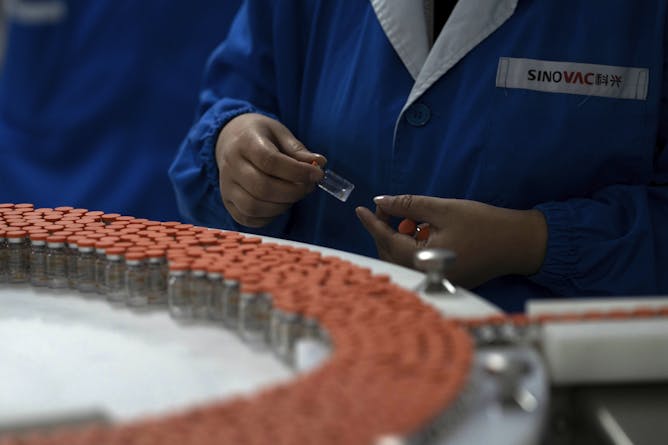
A worker inspects vials of a SARS CoV-2 vaccine for COVID-19 produced by SinoVac at its factory in Beijing on Sept. 24, 2020.
(AP Photo/Ng Han Guan)
Byram W. Bridle, University of Guelph; Samira Mubareka, University of Toronto; Shayan Sharif, University of Guelph
Our first exposure to a pathogen, either naturally or via vaccination, can affect how our immune system responds in the future to the same or similar pathogens.
|
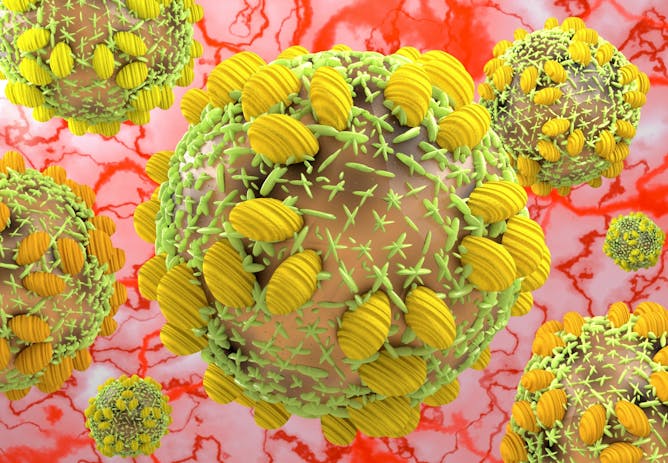
Hepatitis C led to an estimated 400,000 deaths in 2016.
(Shutterstock)
John Bergeron, McGill University
Michael Houghton, an Edmonton-based virologist, was one of the recipients of this year's Nobel Prize for physiology or medicine for the discovery of hepatitis C.
|
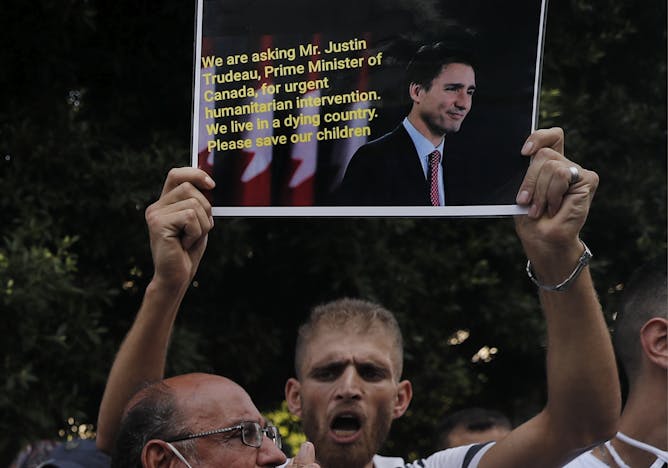
A Syrian refugee holds up a sign with a portrait of Prime Minister Justin Trudeau, during a protest outside the headquarters of the United Nations refugee agency, UNHCR, demanding to be moved out of Lebanon, in September 2020.
(AP Photo/Hussein Malla)
Emily K M Scott, McGill University
As countries around the world develop their own private sponsorship systems, they should acknowledge how elusive refugee status can be. Policy-makers should proceed accordingly.
|
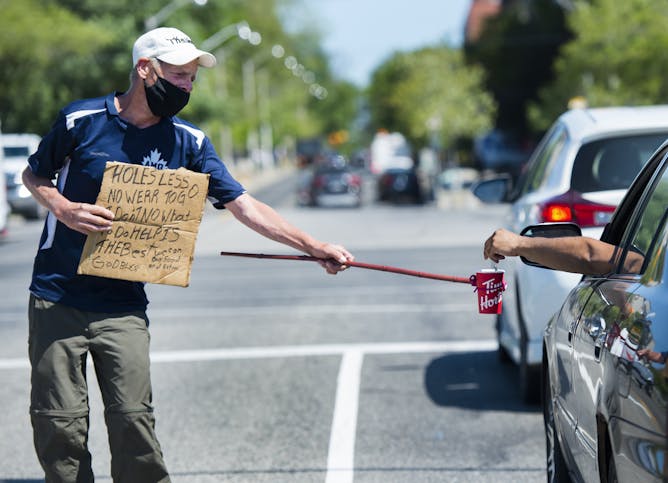
COVID-19 restrictions like physical distancing and cashless payment are making life more difficult for those already vulnerable.
THE CANADIAN PRESS/Nathan Denette
Kristin Burnett, Lakehead University; Chris Sanders, Lakehead University
The outbreak of the COVID-19 pandemic has exposed gaps in the health-care system that leave those without identification documents vulnerable.
|

Artist Joi T. Arcand explains ‘Never Surrender,’ ‘translates a …1980s Canadian pop song into the Cree language and recontextualiz[es] the lyrics as an anthem of Indigenous sovereignty.’ Here, the image layered over a photo of a Winnipeg sidewalk.
(Noor)
Noor Bhangu, Ryerson University
Both the COVID-19 pandemic and urgent debates around public heritage and monuments shape how Nuit Blanche Toronto is seeking to engage artists and viewers in remapping cities.
|
La Conversation Canada
|
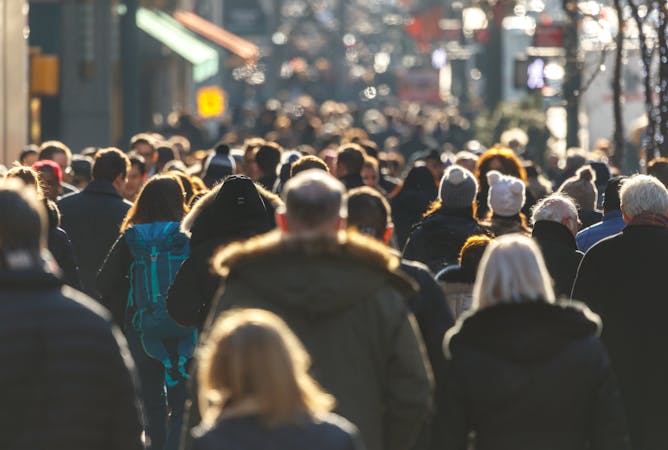
(Shutterstock)
Pieter Trapman, Stockholm University
Les gens n’interagissent pas tous de la même manière en société – ni dans la manière dont ils propagent les maladies. Au niveau de la population, cela fait une différence.
|
Health
|
-
Nancy Nielsen, University at Buffalo, The State University of New York
When a celebrity, politician or other influential person checks in, a health care team can feel pressured to give in to a VIP's wishes.
|
|
Arts
|
-
Ken Murray, University of Melbourne
Eddie Van Halen has died aged 65. He will be remembered for his virtuoso playing, particularly his groundbreaking, two-handed, finger-tapping technique.
|
|
Education
|
-
Paul Ashwin, Lancaster University
Basing the worth of a degree on how much graduates earn overlooks whether there is something intrinsically valuable about higher education itself.
|
|
| |
| |
| |
| |
| |
| |
|
|
|
|
|
|
|